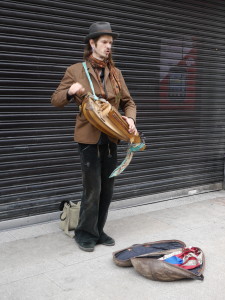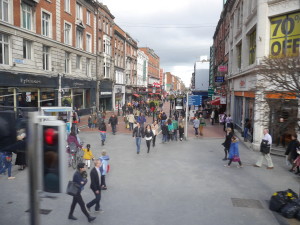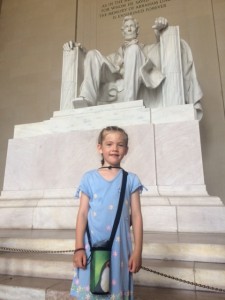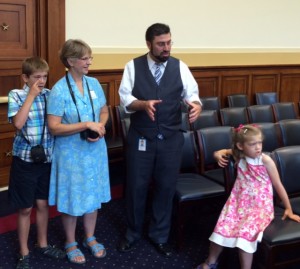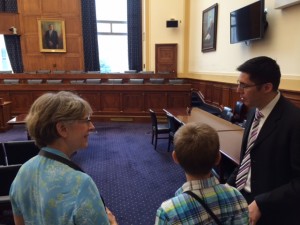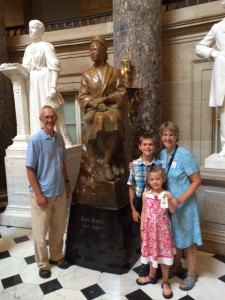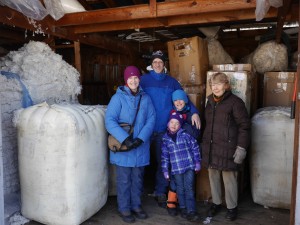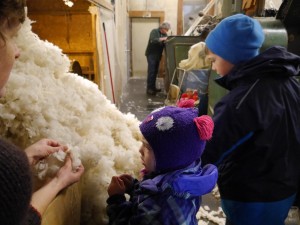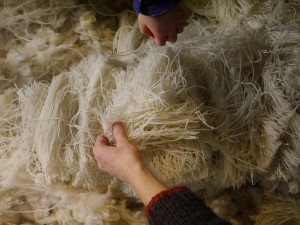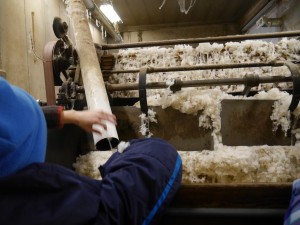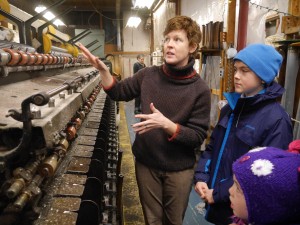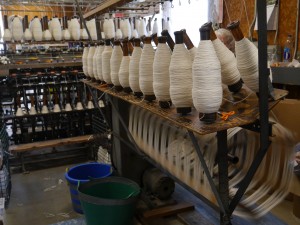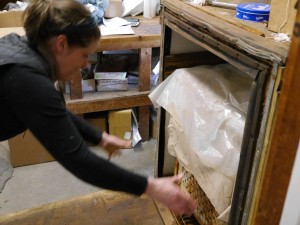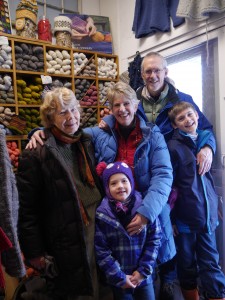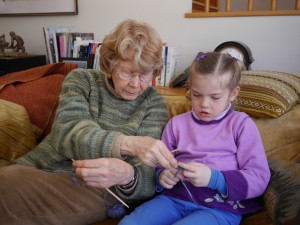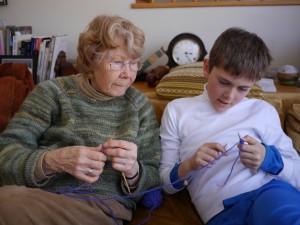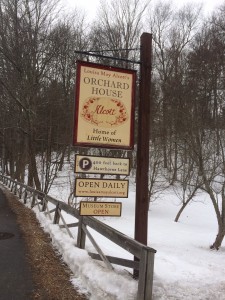 By Chris
By Chris
On our first day in Massachusetts we visited the Orchard House, the family home of Amos Bronson Alcott, a teacher and Transcendental philosopher, his wife, Abigail Alcott, an independent-minded 19th century woman who was one of the first paid social workers in Massachusetts, and their children ~ Anna Alcott Pratt, who had a flair for acting; Louisa May Alcott , well known author and advocate for social reform; Elizabeth Sewall Alcott, a talented musician and the “Angel in the House,” who died shortly before the family moved to Orchard House; and May Alcott Nieriker, a very gifted artist.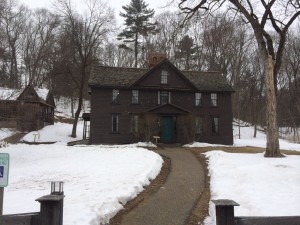
We stood in the very rooms where the young Alcott women entertained their parents and others with original plays penned by Louisa; we saw the desk — built for her by her father between two windows in her upstairs bedroom — where Louisa wrote “Little Women” over the course of six weeks, (often writing up to 14 hours a day!); and witnessed fine examples of May’s accomplished art. The Alcotts counted among their friends the likes of Ralph Waldo Emerson, Henry David Thoreau, and Nathanial Hawthorne, and were part of a vibrant literary and artistic community during the middle years of the 19th century. Far ahead of his time, Bronson Alcott encouraged his daughters to pursue fields of endeavor to which they were drawn and in which their gifts lay rather than fulfill standard roles assigned them by gender. Of equal importance in the Alcott family was the expectation that one should live out a life of service to others. Bronson, Abigail, and their daughters did this on a daily basis without reserve, and with a generosity of spirit, time, and talents that was, to them, second nature, but was, and is, to others an exemplary lifestyle to be emulated.
As we walked through the Alcott’s home and listened to our tour guide telling us the stories of their lives I found myself deeply moved and inspired. In spite of great physical hardship, this family lived rich lives of thankfulness and abundance — not abundance in the sense of physical possessions, but abundance in community, friendships, talents, passion, intellectual curiosity, and love. Standing in the middle of the family’s common rooms, it was as if I could actually feel the love and camaraderie, the warmth and devotion that these family members shared. I think this is what moved me as much as anything else — their appreciation for the gift of family and the joy they seemed to take in living our their lives together with such a sense of creativity, appreciation for one another’s gifts, selflessness, and generosity.
What is it that makes it possible for men and women to entertain thoughts and ideas that run so counter to the prevailing attitudes and expectations of their time? How was it that in and around this small community of Concord there was such a concentration of free thinkers and gifted writers and artists? We have found ourselves pondering these questions as we spend time in this historically rich corner of our country!
 After three wonderful days in Edinburgh we hopped on a plane, flew across the Irish Sea, and landed in Dublin! I (Chris) had been in Dublin for just 5 days exactly 30 years ago wh
After three wonderful days in Edinburgh we hopped on a plane, flew across the Irish Sea, and landed in Dublin! I (Chris) had been in Dublin for just 5 days exactly 30 years ago wh en I was on a college study abroad program. I remember vividly the impression I had of Ireland at that time – that it was a country filled with some of the friendliest, most welcoming people I had ever met. That still is true!
en I was on a college study abroad program. I remember vividly the impression I had of Ireland at that time – that it was a country filled with some of the friendliest, most welcoming people I had ever met. That still is true!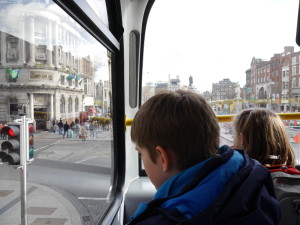 street musician and his hurdy-gurdy, and finally landed at a nearby pub for dinner. Fish and chips was the order of the day, and we soon discovered that in Ireland, the fish is cooked with the skin on! We thoroughly enjoyed a conversation with two fun and friendly women at the adjacent table, who were on their once a month outing, which they dubbed “Cheap and Cheery”—the mandatory requirement for the chosen activity of the day.
street musician and his hurdy-gurdy, and finally landed at a nearby pub for dinner. Fish and chips was the order of the day, and we soon discovered that in Ireland, the fish is cooked with the skin on! We thoroughly enjoyed a conversation with two fun and friendly women at the adjacent table, who were on their once a month outing, which they dubbed “Cheap and Cheery”—the mandatory requirement for the chosen activity of the day.